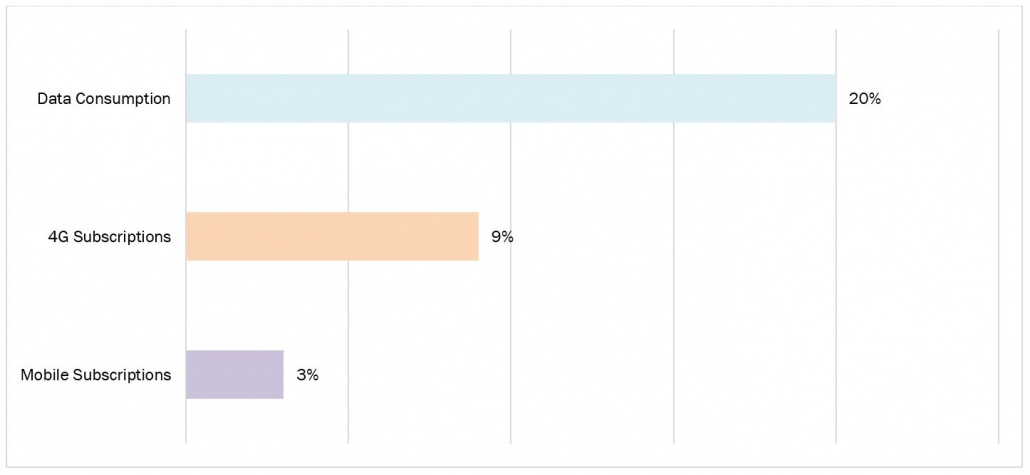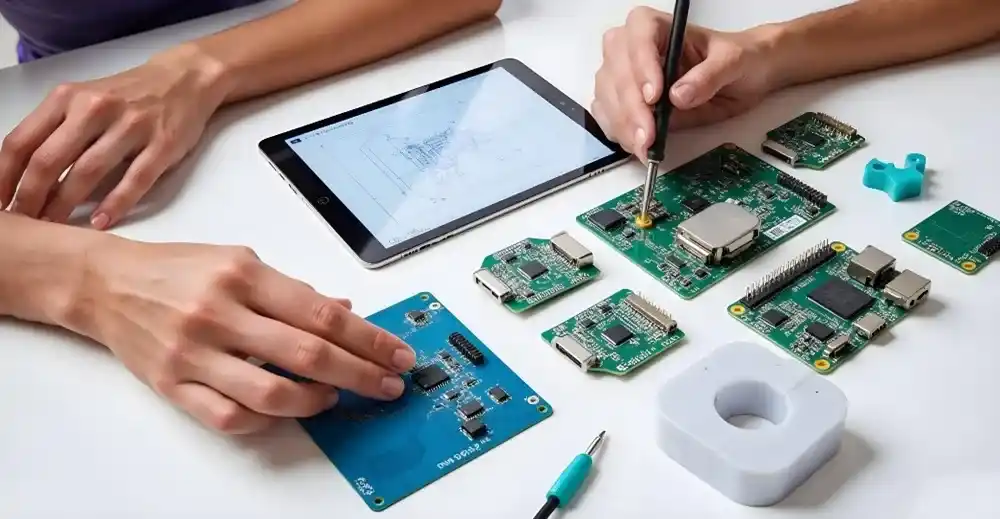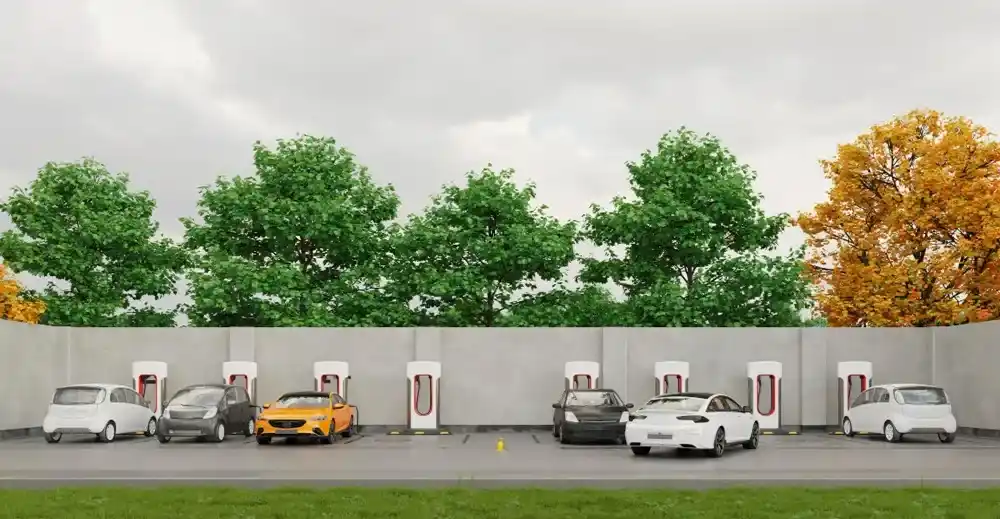5G on the Horizon: Charting the Future of Telecommunications in Africa

The advent of 5G technology in Africa marks a significant leap forward in the continent's technological landscape. As countries across Africa embrace the potential of 5G, there is a growing emphasis on revolutionizing communication, connectivity, and technological innovation.
5G promises to offer faster and more reliable internet connectivity, enabling advancements in various sectors such as healthcare, education, agriculture, and industry. The increased bandwidth and reduced latency of 5G networks can lead to transformative changes in how Africans access information, communicate, and conduct business.
As per Ericsson's Mobility Report, Sub-Saharan Africa is anticipated to witness a surge in 5G subscriptions, reaching 180 million by 2029. Despite a global economic downturn, the economies of Sub-Saharan Africa are poised for robust short-term growth at a rate of 4 percent. Concurrently, the report projects a 3 percent year-on-year increase in total mobile subscriptions over the next six years, with a notable 9 percent rise in 4G subscriptions, presenting a favorable market opportunity for service providers. Additionally, the rising adoption of smartphones, particularly affordable devices, is expected to contribute to an annual growth of over 20 percent in data consumption per smartphone during this period, escalating from 6.7 GB per month to 23 GB per month.
Figure 1: Annual Percentage growth in sub-Saharan Africa, in mobile and 4G subscriptions, and data consumption
 Source: Ericsson Mobility Report
One of the key benefits of 5G in Africa is its potential to bridge the digital divide, providing more equitable access to high-speed internet in both urban and rural areas. This connectivity is crucial for fostering economic development, supporting entrepreneurship, and enhancing overall quality of life. Governments, telecommunications companies, and tech innovators are working collaboratively to deploy and expand 5G networks across the continent. While challenges such as infrastructure development and affordability remain, the positive impact of 5G on Africa's technological future is increasingly evident.
For instance, on November 16, 2023, during the Africacom 5G Summit, GSMA Intelligence collaborated with ICASA, MTN South Africa, and Huawei to unveil a white paper titled "5G FWA in Africa, Emerging Trends and Opportunities." This document thoroughly examines the present developmental patterns and forthcoming prospects for 5G Fixed Wireless Access (FWA) services in Africa.
Internet accessibility in Africa is severely restricted, with only 22% of the population having the means to connect. The inadequate infrastructure further hampers the widespread adoption of internet connections in Africa, as the exorbitant cost of data acts as a barrier to rapid expansion. The Southern African Development Community (SADC), mirroring the trends seen across the entire African continent, has been incrementally enhancing initiatives to increase internet access through internet connectivity. This is particularly crucial as SADC's internet access rate, currently standing at 2%, ranks among the lowest globally.
The March 2023 report from ICASA regarding the state of the Information and Communication Technology (ICT) sector in South Africa revealed that the National 5G population coverage in 2022 was 20% but with no coverage in rural areas. This lack of coverage particularly affects provinces with rural populations, including the Free State, Limpopo, Mpumalanga, and the Northern Cape. The absence of 5G infrastructure in these regions underscores the ongoing challenges in providing advanced telecommunications services to rural communities. Addressing this issue is crucial for ensuring equitable access to technological advancements and promoting digital inclusion across all regions of South Africa. Efforts to expand 5G coverage in rural provinces are essential to bridge the digital divide and foster comprehensive development in the country.
On August 25, 2023, the Ghanaian Government declared its intention to establish a joint 4G and 5G network in collaboration with operators and private investors. The Minister of Communications and Digitalisation, Ursula Owusu-Ekuful, clarified that instead of auctioning the 5G spectrum, the government plans to establish a neutral shared network facilitating mobile services through both 4G and 5G spectrums. The Minister further explained that a consortium comprising network operators and private investors will work together to provide nationwide 4G and 5G services, aligning with Ghana's goal of extending services to rural areas and advancing its digital transformation agenda. Additionally, Owusu-Ekuful revealed that the government has approved the introduction of two new subsea cables to enhance accessible and affordable internet connectivity.
Some of the major market developments in the African region are:
Source: Ericsson Mobility Report
One of the key benefits of 5G in Africa is its potential to bridge the digital divide, providing more equitable access to high-speed internet in both urban and rural areas. This connectivity is crucial for fostering economic development, supporting entrepreneurship, and enhancing overall quality of life. Governments, telecommunications companies, and tech innovators are working collaboratively to deploy and expand 5G networks across the continent. While challenges such as infrastructure development and affordability remain, the positive impact of 5G on Africa's technological future is increasingly evident.
For instance, on November 16, 2023, during the Africacom 5G Summit, GSMA Intelligence collaborated with ICASA, MTN South Africa, and Huawei to unveil a white paper titled "5G FWA in Africa, Emerging Trends and Opportunities." This document thoroughly examines the present developmental patterns and forthcoming prospects for 5G Fixed Wireless Access (FWA) services in Africa.
Internet accessibility in Africa is severely restricted, with only 22% of the population having the means to connect. The inadequate infrastructure further hampers the widespread adoption of internet connections in Africa, as the exorbitant cost of data acts as a barrier to rapid expansion. The Southern African Development Community (SADC), mirroring the trends seen across the entire African continent, has been incrementally enhancing initiatives to increase internet access through internet connectivity. This is particularly crucial as SADC's internet access rate, currently standing at 2%, ranks among the lowest globally.
The March 2023 report from ICASA regarding the state of the Information and Communication Technology (ICT) sector in South Africa revealed that the National 5G population coverage in 2022 was 20% but with no coverage in rural areas. This lack of coverage particularly affects provinces with rural populations, including the Free State, Limpopo, Mpumalanga, and the Northern Cape. The absence of 5G infrastructure in these regions underscores the ongoing challenges in providing advanced telecommunications services to rural communities. Addressing this issue is crucial for ensuring equitable access to technological advancements and promoting digital inclusion across all regions of South Africa. Efforts to expand 5G coverage in rural provinces are essential to bridge the digital divide and foster comprehensive development in the country.
On August 25, 2023, the Ghanaian Government declared its intention to establish a joint 4G and 5G network in collaboration with operators and private investors. The Minister of Communications and Digitalisation, Ursula Owusu-Ekuful, clarified that instead of auctioning the 5G spectrum, the government plans to establish a neutral shared network facilitating mobile services through both 4G and 5G spectrums. The Minister further explained that a consortium comprising network operators and private investors will work together to provide nationwide 4G and 5G services, aligning with Ghana's goal of extending services to rural areas and advancing its digital transformation agenda. Additionally, Owusu-Ekuful revealed that the government has approved the introduction of two new subsea cables to enhance accessible and affordable internet connectivity.
Some of the major market developments in the African region are:
 Source: Ericsson Mobility Report
One of the key benefits of 5G in Africa is its potential to bridge the digital divide, providing more equitable access to high-speed internet in both urban and rural areas. This connectivity is crucial for fostering economic development, supporting entrepreneurship, and enhancing overall quality of life. Governments, telecommunications companies, and tech innovators are working collaboratively to deploy and expand 5G networks across the continent. While challenges such as infrastructure development and affordability remain, the positive impact of 5G on Africa's technological future is increasingly evident.
For instance, on November 16, 2023, during the Africacom 5G Summit, GSMA Intelligence collaborated with ICASA, MTN South Africa, and Huawei to unveil a white paper titled "5G FWA in Africa, Emerging Trends and Opportunities." This document thoroughly examines the present developmental patterns and forthcoming prospects for 5G Fixed Wireless Access (FWA) services in Africa.
Internet accessibility in Africa is severely restricted, with only 22% of the population having the means to connect. The inadequate infrastructure further hampers the widespread adoption of internet connections in Africa, as the exorbitant cost of data acts as a barrier to rapid expansion. The Southern African Development Community (SADC), mirroring the trends seen across the entire African continent, has been incrementally enhancing initiatives to increase internet access through internet connectivity. This is particularly crucial as SADC's internet access rate, currently standing at 2%, ranks among the lowest globally.
The March 2023 report from ICASA regarding the state of the Information and Communication Technology (ICT) sector in South Africa revealed that the National 5G population coverage in 2022 was 20% but with no coverage in rural areas. This lack of coverage particularly affects provinces with rural populations, including the Free State, Limpopo, Mpumalanga, and the Northern Cape. The absence of 5G infrastructure in these regions underscores the ongoing challenges in providing advanced telecommunications services to rural communities. Addressing this issue is crucial for ensuring equitable access to technological advancements and promoting digital inclusion across all regions of South Africa. Efforts to expand 5G coverage in rural provinces are essential to bridge the digital divide and foster comprehensive development in the country.
On August 25, 2023, the Ghanaian Government declared its intention to establish a joint 4G and 5G network in collaboration with operators and private investors. The Minister of Communications and Digitalisation, Ursula Owusu-Ekuful, clarified that instead of auctioning the 5G spectrum, the government plans to establish a neutral shared network facilitating mobile services through both 4G and 5G spectrums. The Minister further explained that a consortium comprising network operators and private investors will work together to provide nationwide 4G and 5G services, aligning with Ghana's goal of extending services to rural areas and advancing its digital transformation agenda. Additionally, Owusu-Ekuful revealed that the government has approved the introduction of two new subsea cables to enhance accessible and affordable internet connectivity.
Some of the major market developments in the African region are:
Source: Ericsson Mobility Report
One of the key benefits of 5G in Africa is its potential to bridge the digital divide, providing more equitable access to high-speed internet in both urban and rural areas. This connectivity is crucial for fostering economic development, supporting entrepreneurship, and enhancing overall quality of life. Governments, telecommunications companies, and tech innovators are working collaboratively to deploy and expand 5G networks across the continent. While challenges such as infrastructure development and affordability remain, the positive impact of 5G on Africa's technological future is increasingly evident.
For instance, on November 16, 2023, during the Africacom 5G Summit, GSMA Intelligence collaborated with ICASA, MTN South Africa, and Huawei to unveil a white paper titled "5G FWA in Africa, Emerging Trends and Opportunities." This document thoroughly examines the present developmental patterns and forthcoming prospects for 5G Fixed Wireless Access (FWA) services in Africa.
Internet accessibility in Africa is severely restricted, with only 22% of the population having the means to connect. The inadequate infrastructure further hampers the widespread adoption of internet connections in Africa, as the exorbitant cost of data acts as a barrier to rapid expansion. The Southern African Development Community (SADC), mirroring the trends seen across the entire African continent, has been incrementally enhancing initiatives to increase internet access through internet connectivity. This is particularly crucial as SADC's internet access rate, currently standing at 2%, ranks among the lowest globally.
The March 2023 report from ICASA regarding the state of the Information and Communication Technology (ICT) sector in South Africa revealed that the National 5G population coverage in 2022 was 20% but with no coverage in rural areas. This lack of coverage particularly affects provinces with rural populations, including the Free State, Limpopo, Mpumalanga, and the Northern Cape. The absence of 5G infrastructure in these regions underscores the ongoing challenges in providing advanced telecommunications services to rural communities. Addressing this issue is crucial for ensuring equitable access to technological advancements and promoting digital inclusion across all regions of South Africa. Efforts to expand 5G coverage in rural provinces are essential to bridge the digital divide and foster comprehensive development in the country.
On August 25, 2023, the Ghanaian Government declared its intention to establish a joint 4G and 5G network in collaboration with operators and private investors. The Minister of Communications and Digitalisation, Ursula Owusu-Ekuful, clarified that instead of auctioning the 5G spectrum, the government plans to establish a neutral shared network facilitating mobile services through both 4G and 5G spectrums. The Minister further explained that a consortium comprising network operators and private investors will work together to provide nationwide 4G and 5G services, aligning with Ghana's goal of extending services to rural areas and advancing its digital transformation agenda. Additionally, Owusu-Ekuful revealed that the government has approved the introduction of two new subsea cables to enhance accessible and affordable internet connectivity.
Some of the major market developments in the African region are:
- In February 2023, Nokia announced a significant development, as it secured its first-ever selection by MTN South Africa (MTN SA) as one of the providers for its 5G Radio Access Network (RAN) equipment. This collaboration involves the modernization of the existing 2G/3G/4G radio network and the expansion of MTN's 5G radio network across 2800 sites in the Central and Eastern regions of South Africa. This initiative aims to propel digitalization efforts across the African continent. MTN SA, a subsidiary of MTN Group Limited, which is Africa's largest mobile network operator operating in 17 countries and serving 272 million subscribers, marks a significant partnership for Nokia in contributing to the advancement of telecommunications infrastructure in the region.
- In November 2022, Orange officially rolled out its commercial 5G network in Botswana, making it the inaugural Orange country in Africa to introduce this advanced technology. Orange Botswana, as the first affiliate on the continent to launch 5G commercially, provided coverage in greater Gaborone and Francistown, encompassing 30% of the population. The introduction of 5G technology by Orange in Botswana is expected to facilitate the implementation of new healthcare, education, and security services in the country. This milestone underscores Orange's commitment to advancing technological infrastructure in Africa, enhancing connectivity, and opening up opportunities for innovative services and solutions.
- In March 2022, MTN Group entered into a Memorandum of Understanding (MoU) with Rakuten Symphony, outlining plans to carry out live Proof of Concept (PoC) trials for both 4G and 5G Open RAN in South Africa, Nigeria, and Liberia. The trials were based on the Rakuten Communications Platform (RCP), a comprehensive solution designed to support telcos globally in deploying fully cloud-native network services. The collaboration between MTN Group and Rakuten Symphony signified a strategic partnership aiming at exploring and validating the capabilities of Open RAN technology in diverse African markets. The trials, utilizing RCP not only assessed the performance of 4G and 5G networks but also contributed to the evolution of cloud-native infrastructure in the telecommunications sector. This initiative underscored the commitment of both companies to drive innovation and enhance the efficiency and flexibility of network services in the evolving landscape of telecommunications across South Africa, Nigeria, and Liberia.
- 5G Subscriber Data Management Market: https://www.knowledge-sourcing.com/report/5g-subscriber-data-management-market
- 5G System Integration Market: https://www.knowledge-sourcing.com/report/5g-system-integration-market
- 5G Mobile Core Network (MCN) Market: https://www.knowledge-sourcing.com/report/5g-mobile-core-network-mcn-market
Get in Touch
Interested in this topic? Contact our analysts for more details.
Latest Thought Articles

Top OSAT Companies Driving Semiconductor Assembly and Test Services Worldwide
Recently
EV Charging Stations Market Outlook: Smart Charging, Fast Charging, and Regional Expansion
Recently
Future of Corporate Wellness: Global Trends and Regional Outlook
Recently
Regional Breakdown of the Mechanical Keyboard Market: Who Leads and Why?
Recently